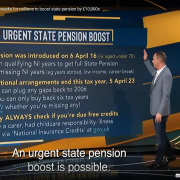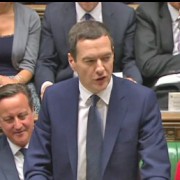
My name is Daniel and I have been a part of the Taxfile family since 2007. It started as a part-time job doing bookkeeping, but as time went on, I developed new abilities and a deeper understanding of the tax world. PAYE, VAT, and Company Register are now my areas of expertise.
I understand how complicated the tax world is, so here are a few PAYE things to consider:
Understanding the tax thresholds for 2021-2022
PAYE is calculated based on how much you earn and whether you are eligible for the personal allowance.
- Standard Rate: PAYE income tax is charged at 20%, less a personal allowance of £12,570, this is signified by tax code 1257L.
- Higher Rate: For most, income over £50,270 to £150,000 is charged at 40%.
- Additional Rate: Income above £150,000 is charged at 45%.
What is the Employment Allowance?
The Employment Allowance allows certain businesses that employ workers to reduce their annual National Insurance (NI) bill by up to £4,000 (for the 2021/22 tax year).
Eligible businesses can claim a reduction against their employer’s Class 1 NI liability up to a maximum of £4,000 each tax year. You can still claim the allowance if the liability was less than £4,000 in a tax year.
You can’t claim if you’re a company with only one employee paid above the Class 1 National Insurance Secondary Threshold (£8,840 for the 2021/22 tax year, up from £8,788 for the 2020/21 tax year) if that employee is also a director of the company.
How will I know if I haven’t paid the right amount of PAYE?
HMRC will send out a P800 tax calculation form after the tax year ends on 5 April, which you should receive by the end of November. This will show how much tax is due to be refunded, or is owed for previous years.
Another significant aspect of Taxfile is that it works with a wide range of accounts software (Sage, QuickBooks, Xero, FreeAgent, VT, Forbes, Moneysoft, and so on) and can accommodate everyone. These are just a few examples, but if you need assistance with any area of PAYE, VAT, or other types of tax, Taxfile and the team are here to help. Call Taxfile on 020 8761 8000, book a free appointment (in-person and phone or video call options are available) or simply message us your tax-related query and we’ll be happy to help. We are accountants and tax experts in South London and the South West.
This post was brought to you by Daniel at Taxfile.











 [UPDATE: Please note that this offer has now expired]. Taxfile’s customers can benefit from an incredible offer on a range of Sage accounting packages at the moment. We’re offering a FREE or, in effect, heavily subsidised* Sage accounting package to all active Taxfile customers, whether existing or new. There are various different packages available so we’re sure we’ll have one which will suit every customer perfectly. The list of benefits is almost endless — here are just a few:
[UPDATE: Please note that this offer has now expired]. Taxfile’s customers can benefit from an incredible offer on a range of Sage accounting packages at the moment. We’re offering a FREE or, in effect, heavily subsidised* Sage accounting package to all active Taxfile customers, whether existing or new. There are various different packages available so we’re sure we’ll have one which will suit every customer perfectly. The list of benefits is almost endless — here are just a few:
 Have you ever wondered how much of one’s total income is taken up in tax? And I don’t mean just Income Tax. I mean in ALL taxes paid by ordinary taxpayers throughout the course of a year. Such a figure would need to take into account National Insurance (income tax in all but name, some might say), the insidious Value Added Tax or ‘VAT’ – which on its own is a hefty 20% tax on what is often already taxed money for most ordinary taxpayers, and don’t forget to include Council Tax and finally, of course, Income Tax itself.
Have you ever wondered how much of one’s total income is taken up in tax? And I don’t mean just Income Tax. I mean in ALL taxes paid by ordinary taxpayers throughout the course of a year. Such a figure would need to take into account National Insurance (income tax in all but name, some might say), the insidious Value Added Tax or ‘VAT’ – which on its own is a hefty 20% tax on what is often already taxed money for most ordinary taxpayers, and don’t forget to include Council Tax and finally, of course, Income Tax itself.